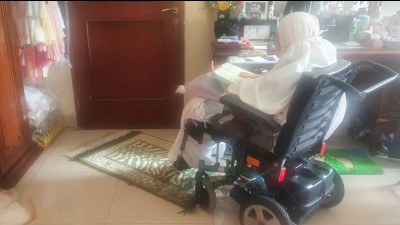Protection after an older corona infection?
Bhakdi, on the other hand, concludes something different: He claims that our immune system protects us so reliably against SARS-CoV-2 infection that we could save ourselves the vaccination. Cross-reactivity after older infections with other corona viruses is also responsible. This explains why only the “memory antibodies” IgG and IgA were found: the test subjects’ immune system was already prepared. These memory antibodies, according to Bhakdi, only formed after a second infection.
But Bhakdi – from an immunological point of view – confuses a lot.
- The “memory antibodies” IgG and IgA are also formed after an initial infection: IgG and IgA antibodies are also formed after an initial infection with a pathogen; they only need a little longer than the faster IgM antibodies (in the case of a corona infection, according to the latest scientific findings, the temporal appearance of the IgM antibodies is delayed, see “Which antibodies are there?”). But it is not unusual for IgG and IgA to be detected in the blood just two to four weeks after infection.
- It may be that the test persons have been infected with an older coronavirus before – but it does not have to be: The blood of the subjects in the Danish study was examined for a period of up to twelve weeks after a proven corona infection. In this respect, it is not true that the participants have certainly already had an infection with an older coronavirus. That can be, but it doesn’t have to be.
- It is still unclear whether there is any cross immunity due to previous coronaviruses: It is also uncertain how well such “cross-reactivity” – if it exists – protects against infection with SARS-CoV-2. There are indications that our memory T cells, which would have formed after an older infection with another coronavirus, showed a certain degree of cross-reactivity and that this could also be helpful against SARS-CoV-2, says the immunologist Professor Reinhold Förster from the Hannover Medical School. But the extent to which this “basic immunity” protects us has not yet been adequately proven scientifically.
Subjects seriously ill despite a good immune response
In addition, Bhakdi confuses something very fundamental: The fact that almost all test subjects in the Danish study developed a comprehensive immune response says nothing about the severity of their illness. About a third of those examined suffered from severe Covid 19 symptoms during the illness, and some were ventilated in the intensive care unit. The fact that they then developed IgG and IgA antibodies in the course of their illness did not help them much for their own course at first.
Vaccination prepares the immune system
This is exactly where the corona vaccination comes into play: It activates our immune system beforehand and forms the necessary weapons against the virus, says the infectiologist Reinhold Förster. In other words: no later than two weeks after a full vaccination, our body has the necessary IgG and IgA antibodies (and also the corresponding response from our immune memory cells) to effectively fight the virus in the event of an infection.
When and which immune response is present also depends on the vaccine. Researchers from the University of Freiburg were able to prove in a not yet published studythat, for example, when vaccinating with the mRNA vaccine from Biontech, a relevant increase in so-called “T cells” can be detected just six to eight days after the first dose.
This first line of immune defense, also known as “killer cells”, ensures that cells already infected by the virus destroy themselves. There is already comparatively effective protection against a serious course of the disease. Only after the second vaccination dose does the immune reaction become even more specific and powerful. Neutralizing antibodies can now also be detected. These prevent – in most cases – the virus from attacking the cells in the first place and the patient becoming infected.
In the vast majority of cases, there are no serious symptoms in the first place. The Danish study has shown that if there is no vaccination, the immune system is too late if there is any doubt. Serious illness cannot be prevented. There can be no question of sufficient natural protection, as Bhakdi claims.
Conclusion: According to a Danish study, almost all patients develop antibodies against the virus after a corona infection. The study authors conclude that – regardless of the severity of the disease – most people develop a good immune response to the virus. The controversial microbiologist Sucharit Bhakdi, who has also made false claims in the past, draws a completely different conclusion from this: The vaccination is unnecessary because our immune system can cope well with the virus anyway. But that is precisely what the study does not show: in many cases, the body’s immune reaction came too late, and the patients were already seriously ill. At present, vaccination is the only reliable protection against serious infection.
–


